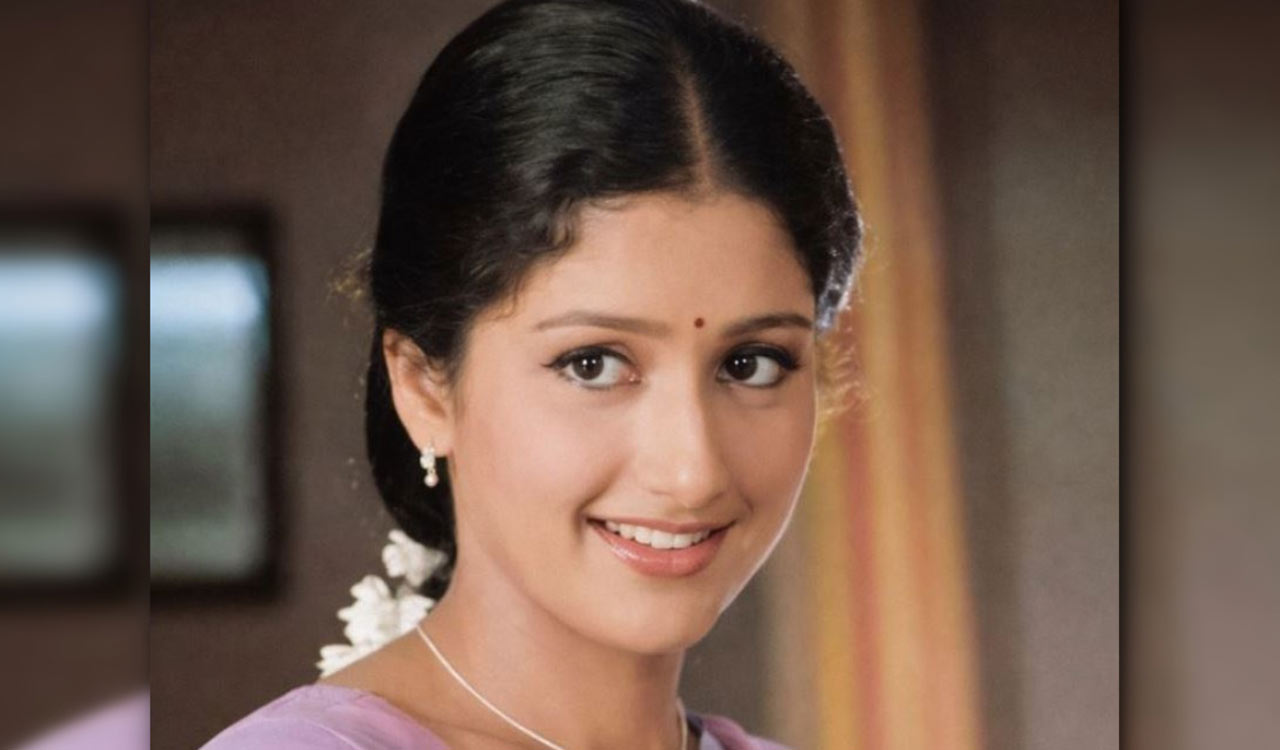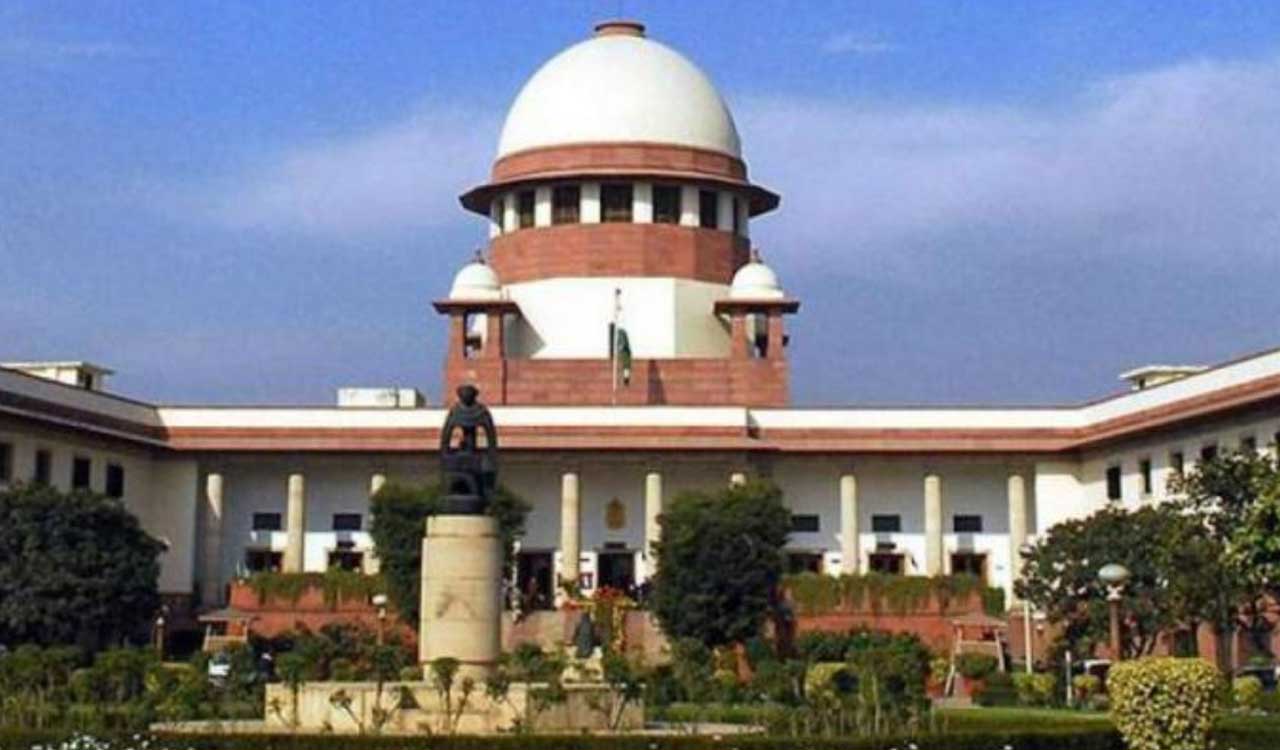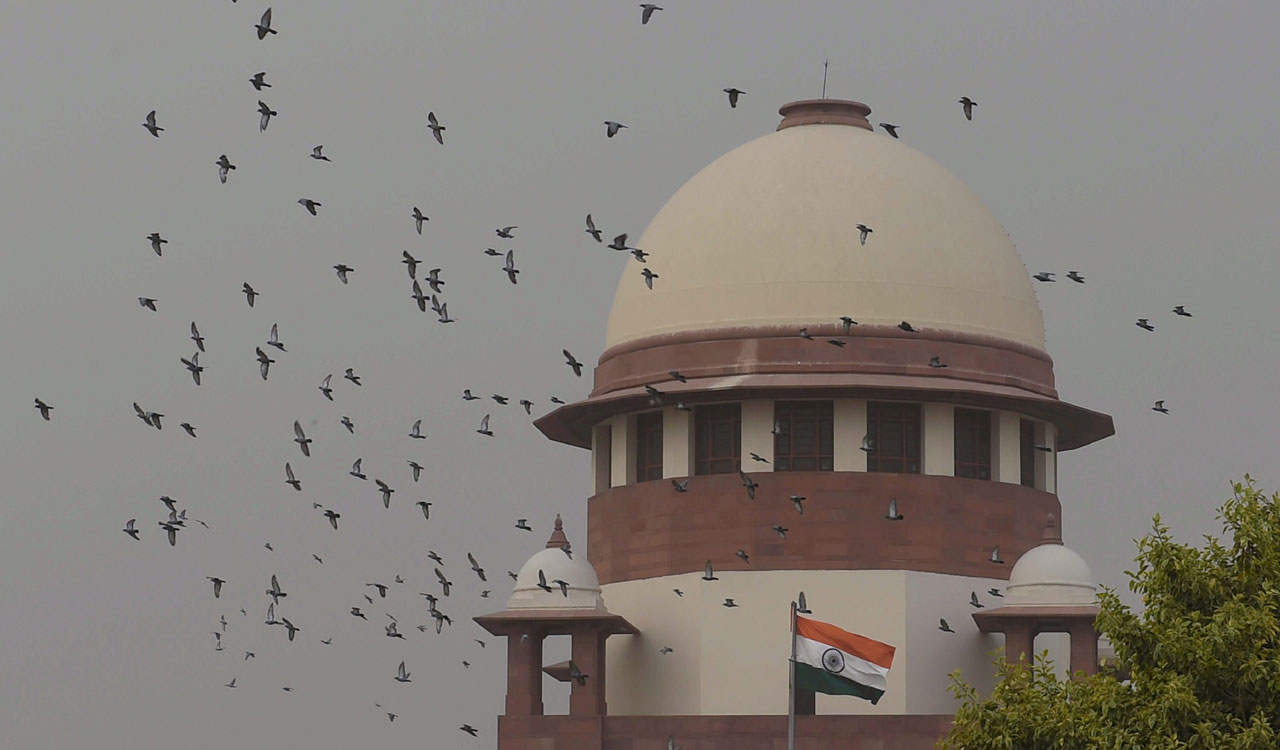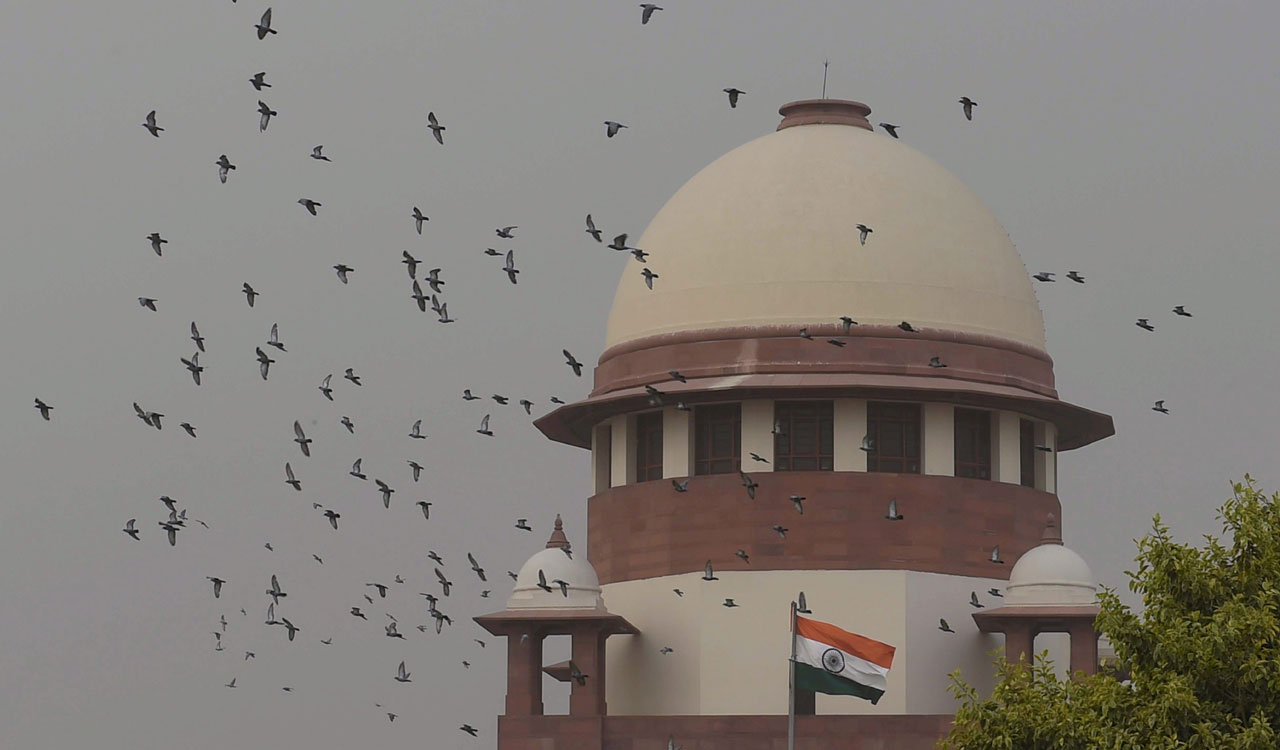SC cautious not to strain India-Russia ties amid child custody dispute
The Supreme Court said it does not want to pass any order that could strain India-Russia relations while hearing a custody case involving a Russian woman who fled to Moscow with her child, directing the MEA and Delhi Police to intensify efforts

New Delhi: The Supreme Court has observed that it does not want to pass any order that could hurt the India-Russia relationship, as it expressed concern over sincere efforts in tracing a Russian woman, who has fled to Moscow with her child amid a bitter custody battle with her estranged Indian husband.
A bench of Justices Surya Kant and Joymalya Bagchi emphasised the need for proper coordination, as it pointed out to the diplomatic challenge for the Ministry of External Affairs (MEA), the Indian Embassy in Moscow, and the Russian Embassy in Delhi to find a resolution of the issue and take steps to restore the child to the custody of the apex court.
It noted that in a report of the MEA, it has been pointed out that the embassy had already reached out to the office of prosecutor general for assistance and cooperation based on principles of mutuality and comity and fresh requests under the Mutual Legal Assistance Treaty (MLAT) were issued on October 17 through the Indian embassy at Moscow to the office of the prosecutor general of Russia.
Additional Solicitor General Aishwarya Bhati, appearing for the Centre, said that the MEA is coordinating with Delhi Police for further investigation into other involved persons, including Nepali citizens, through the MLAT channel with Nepal.
The bench, which noted the complicity of Russian embassy officials in helping the Russian woman to flee the country with the child via Nepal and Sharjah in the UAE, said Delhi Police sent notices to the Russian authorities seeking further information, but it has not yielded any tangible results.
The woman, who has been residing in India since 2019, came to India on an X-1 Visa, which subsequently expired. However, during the pendency of the court proceedings, the top court directed the extension of the visa from time to time.
“We don’t want to pass any order that may hurt the relationship between India and Russia, but it is also a matter where a child is involved. We can only hope the child is well as he is with the mother. Hope it is not the case of human trafficking…,” the bench told Bhati. Bhati said that she has personally talked to Russian embassy officials, but no substantial progress has been made.
“We are road-blocked on information from the Russian side, despite taking various efforts,” she said. The bench noted that notice has also been issued to the Sberbank of Russia, New Delhi, branch to provide information on the holder of the credit card, which was used to book the tickets, but the bank has responded saying they cannot share the information due to banking secrecy laws.
During the course of the hearing, different courses of action have been suggested to the MEA and Delhi Police, which may be followed or employed by them to yield the desired results.
“We have been assured by the Additional Solicitor General of India that necessary instructions will be issued to the Ministry of External Affairs as well as the Delhi Police to take further action in terms of the discussions that have taken place during the course of the hearing,” it said on Friday and asked ASG Bhati to file a status report in two weeks.
On July 21, the top court was informed that the Russian woman, pitted in a bitter custody battle of her child with her estranged Indian husband, seems to have left the country with the minor via the Nepal border and might have reached her country through Sharjah.
The top court had called the situation “unacceptable” and observed “gross contempt of court”. The father of the child is fighting a custody battle for the child with the estranged Russian woman, and he alleges she wasn’t complying with the court’s order of custody of the minor.
The man claimed the whereabouts of the woman and his child were unknown. On July 17, the top court directed senior Delhi Police officials to immediately trace a child and asked the Centre to issue a look-out notice concerning the woman and the minor to ensure she did not leave the country.
The top court on May 22 directed that the exclusive custody of the child was given to the mother for three days a week on Monday, Tuesday, and Wednesday, and for the remaining days, the child was directed to remain in the exclusive custody of his father.
Related News
-
Telangana HC halts Ibrahimpatnam Municipal Council election process
3 mins ago -
Telangana government cuts fees for private engineering colleges
6 mins ago -
BRS leaders approach SEC seeking action against Congress atrocities in civic polls
8 mins ago -
Girls to get location benefit in Telangana EAPCET centre allotments
17 mins ago -
Man murdered by wife for forcing her into prostitution in Mancherial
28 mins ago -
Burgampad police arrests two for attempting to kill their friend to claim insurance money
32 mins ago -
Married woman attacked by widower in Mahabubabad with petrol
35 mins ago -
Medak District Collector sentenced to six months in jail
42 mins ago




